IN FOCUS: Bludgeoned to death, charred by blowtorch — what many dogs and cats in Indonesia undergo before becoming food
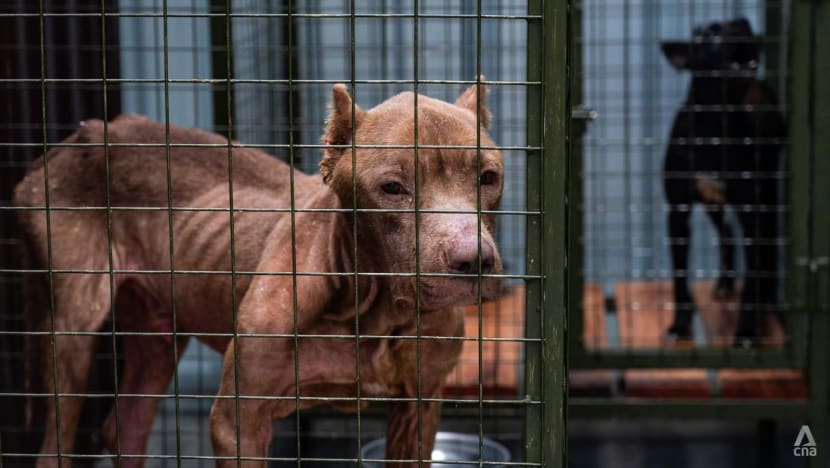
This emaciated pitbull was rescued from the Tomohon Extreme Market, Indonesia where until July 21, 2023 hundreds of dogs and cats were slaughtered for food. (Photo: CNA/Wisnu Agung Prasetyo)
- Activists estimate that around one million dogs and thousands of cats are slaughtered for their meat in Indonesia every year
- Only 22 out of 514 cities and regencies in Indonesia have issued some form of regulation against the sale of dog and cat meat
- There is no national law barring the trade and consumption of dog and cat meat, making the fight to end the practice an uphill battle
TOMOHON, Indonesia: Like its namesake, the Tomohon Extreme Market in Indonesia’s North Sulawesi province is not for the faint of heart.
On the ceramic-covered counter of one stall are rows of fruit bats and field rats charred to a crisp while at another, three-metre-long pythons are stripped out of their skins while being suspended to metal hooks.
The sight, however gut-wrenching, is milder than what it was less than two months ago when vendors at the market were still allowed to sell dog and cat meat.
At the time, the smell of recently slaughtered dogs and cats being scorched by blow torches to get rid of their fur would permeate throughout the market.
Meanwhile, freshly drawn blood would stain different corners of the market where dogs were brutally bludgeoned to death.
The same spots would be filled with cages of emaciated and stressed-out dogs and cats, some whimpering out of fear that they would be next to be killed.
That all changed on Jul 21 when Tomohon mayor Caroll Senduk issued an instruction banning the sale of dog and cat meat at the city-owned market.
Although the ban is only limited to the market and does not apply to the sale and consumption of dog and cat meat in other parts of the city, animal rights activists have lauded the move, calling it an important step in getting the rest of the country to follow suit.
“(The ban) has a huge symbolic value given that Tomohon market is notorious around the world for the trading and slaughtering of dogs and cats,” Mdm Lola Webber of the not-for-profit group Humane Society International (HSI) told CNA.
“If we can get such a ban at the Tomohon Extreme Market, it gives hope that others will take similar actions.”
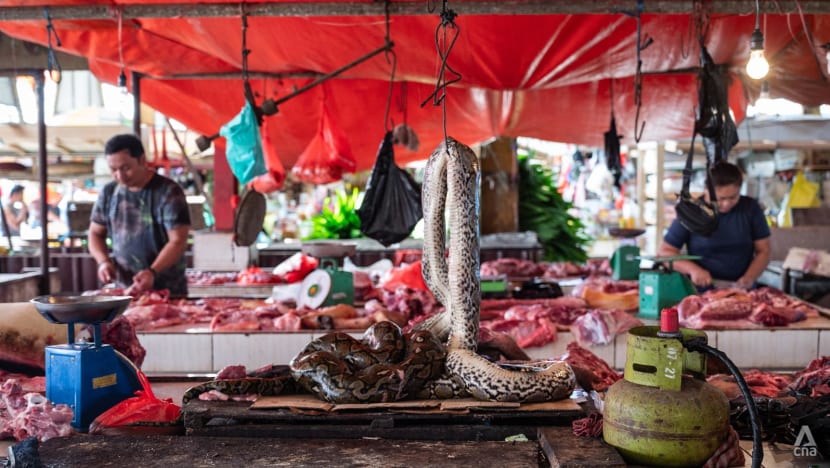
MALICIOUS TRADE
To date, only 22 out of 514 cities and regencies across Indonesia have issued regulations, in one form or the other, against the sale of dog and cat meat.
These include Semarang, Indonesia’s sixth biggest city, as well as Sukoharjo Regency, which was once notorious for its dog and cat meat trade.
Getting these 22 areas to come on board in the fight to end the dog and cat meat trade has been a long struggle, activists say, even in cities where consumption of such meat is low like Jakarta.
The capital city only passed a directive banning the sale of dog and cat meat last year.
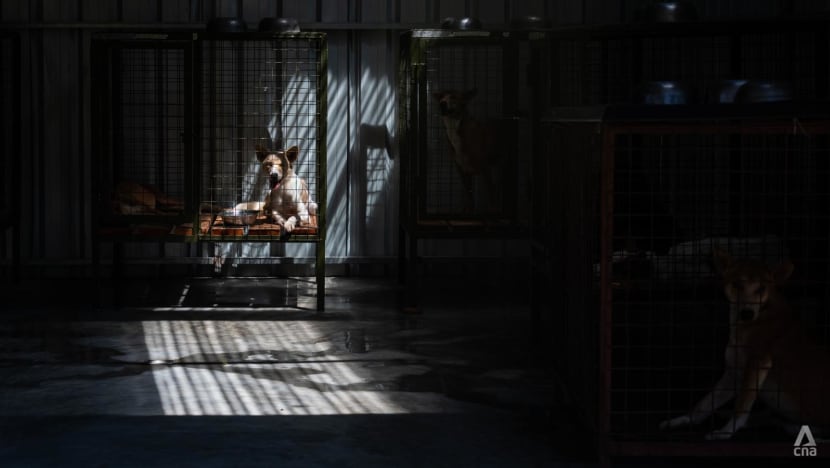
Activists have estimated that each year, more than one million dogs and thousands of cats are slaughtered in Indonesia where some communities believe that consuming dog or cat meat can cure various ailments, although these claims have never been scientifically proven.
The reason behind the vast difference between the demand for dogs and cats is that many in Indonesia have embraced cats as pets.
The majority of the dogs and cats consumed are mixed breeds although there are cases of abandoned or stolen purebreds slaughtered for food.
Of the over one million dogs, around 70 per cent of dogs consumed in Indonesia come from North Sulawesi.
When the Tomohon ban was announced, activists rushed to rescue the dogs and cats bound to be slaughtered at the market by sellers trying to clear stocks ahead of the deadline.
“They were in terrible conditions,” Mr Frank Manus of the Animal Friends Manado Indonesia (AFMI), who participated in the rescue, told CNA.
“They were malnourished and dehydrated. Some had diseases. Some had infections because they were mistreated and kept in cages for weeks. Because of the stress they also fought amongst themselves.”
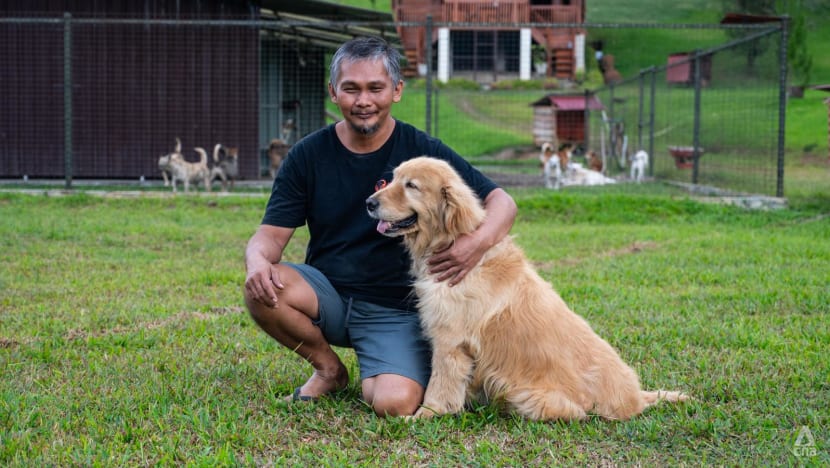
Of the 25 dogs and three cats rescued and subsequently taken to an AFMI animal shelter located at the edge of Tomohon, three dogs were in such dire states they eventually succumbed to their illnesses and injuries.
Mr Manus said the dogs were most likely trafficked from other parts of Sulawesi - a vast, mountainous, K-shaped island in the middle of Indonesia that is divided into six provinces.
This meant that some dogs spent days, perhaps weeks, in captivity and in poor condition before they were slaughtered.
Of all the provinces on the island, dog and cat meat consumption is only prevalent in North Sulawesi.
“For Minahasa people, it is customary to provide guests with various kinds of meat including dogs and cats during funerals, weddings and Christmas celebrations. This is our tradition,” exotic meat wholesaler Elviano Pongoh told CNA, referring to North Sulawesi’s biggest ethnic group.
He added that he usually sells up to 100 dogs and cats a day, with demands peaking around the Christmas and New Year holidays.
“During the holidays, these freezers would be filled with (slaughtered) dogs and my yard would be filled with dozens of cages containing the live ones,” he said at his two-storey home in the centre of Tomohon.
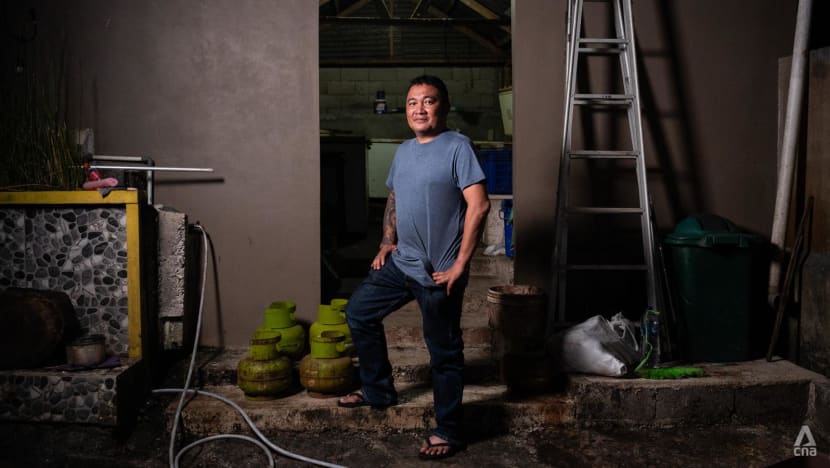
Mr Pongoh revealed that he gets his dogs from poachers in other Sulawesi provinces while the cats are mostly local strays.
Most of the dogs, he said, would have been slaughtered by the time they arrive in Tomohon, thus he cannot assure his customers that they did not die from diseases or old age.
“Some customers prefer live ones, so they can see with their own eyes what the dogs and cats are like before they are slaughtered,” Mr Pongoh said.
Since the slaughtered dogs and cats are sold as charred carcasses, the wholesaler added that there are instances of poachers and vendors trying to pass meat from diseased animals as healthy ones.
The poachers are not very discerning about which dog or cat to catch, vendors and activists told CNA, adding that they will sometimes net puppies as well as sick and ageing animals.
During a police raid at a dog meat slaughterhouse in Central Java’s Sukoharjo Regency in 2021, officials and activists discovered that 10 out of the 54 dogs rescued were pregnant.
Meanwhile in Tomohon, the rescued dogs include a purebred samoyed and a pitbull, suggesting that they were likely pets stolen by poachers from their respective human families.
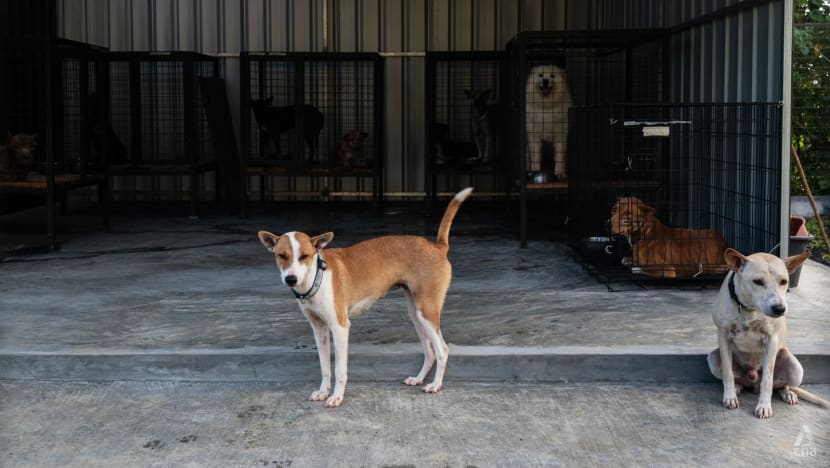
LACK OF REGULATION
Since dogs and cats are not considered food by Indonesia’s Ministry of Agriculture nor are they listed as endangered species by the country’s Ministry for the Environment and Forestry, the trade of dog and cat meat exists in a grey area within Indonesia’s legal system.
Mdm Webber of HSI highlighted the fact that there are numerous regulations, standards and health requirements related to animals bred for consumption like cows, chickens and pigs, governing anything from the way they are treated, transported and slaughtered.
“Because dogs and cats are not considered food, their trade is virtually unregulated,” she said.
Meanwhile, people in Indonesia can face lengthy jail terms and hefty fines for so much as catching, let alone killing an endangered species.
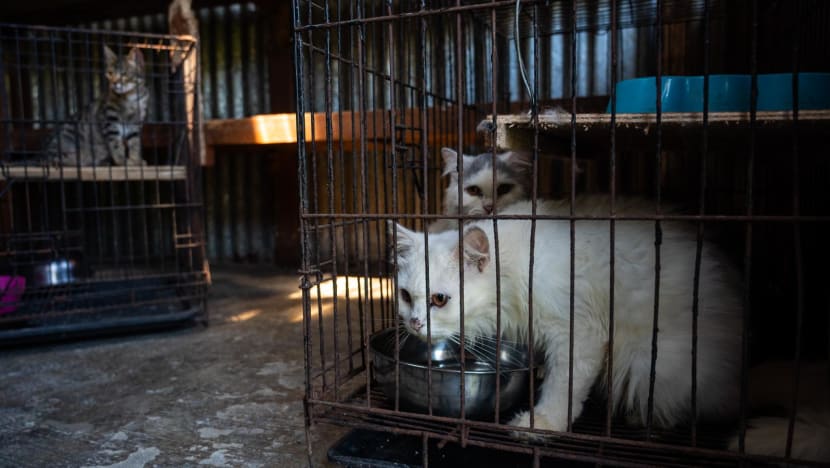
With the absence of a national law which explicitly prohibits the sale and trafficking of dog and cat meat, Indonesia was only able to prosecute its first dog meat trading case in 2021.
Police had to charge the suspect, Suradi - accused of trafficking 78 dogs for slaughter - with transporting dogs out of a rabies zone, West Java to a rabies-free zone, Yogyakarta without a permit.
Suradi, who like many Indonesians goes by one name, was sentenced to 10 months in prison and a fine of 150 million rupiah (US$9,838).
Related:
Earlier this year, Nasrullah, director general of livestock and animal welfare at the Ministry of Agriculture, said his office was cautious about imposing a nationwide ban on the trade and consumption of dog and cat meat as they were part of the local culture in some areas.
He said the ministry would instead be pushing local governments to enact their own regulations and decrees to combat the trade.
"We explain (to local governments) to consider the zoonotic disease aspect, the legal aspect, the control and eradication of animal disease aspect,” Nasrullah said in a statement in February. A zoonotic disease is one that is transmissible from animals to humans.
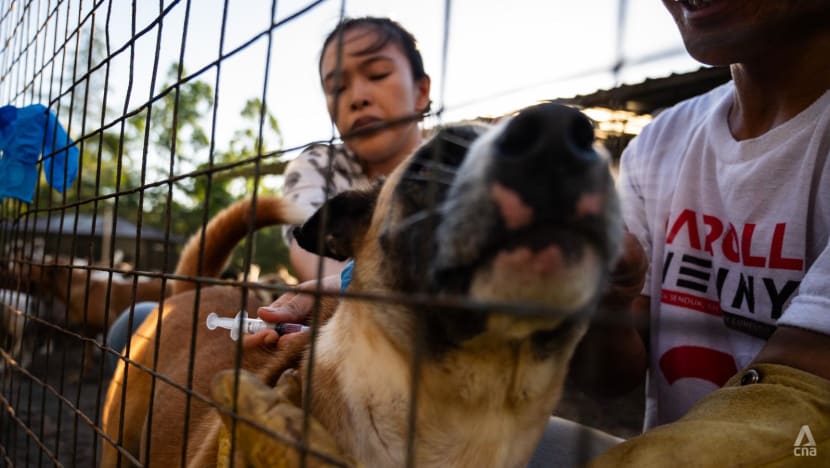
The ministry, he said, had also issued a directive in 2018 calling for regional governments to stop issuing permits and health certificates to dog meat products and slaughterhouses and to ban dog meat sales.
Five years since the directive was issued, only 22 regencies and cities have complied.
UPHILL BATTLE
Mr Manus of AFMI said it took activists 10 years to convince the Tomohon government to stop the animal cruelty happening at the city’s Extreme Market.
It was a tough order since the market is one of the very things that puts Tomohon on the map for tourists.
At first, the city government only agreed to ban the trade of protected wildlife such as the critically endangered Celebes crested macaque and the vulnerable Sulawesi bear cuscus. But Mr Manus and other activists did not give up.
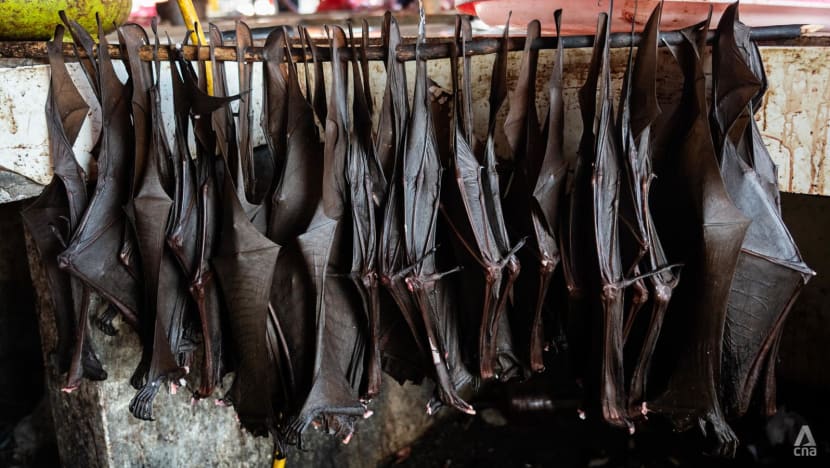
“Animal welfare is not a priority issue in the eyes of the government. But when we told the government that the dog and cat meat trade is contributing to the spread of rabies and thus endangering public health and safety, they were willing to listen,” he said.
Tomohon has been trying hard to shed its image as a rabies hotspot, said Mr John Karundeng, chief of the animal welfare division at the Tomohon agriculture agency.
“The number of rabies cases is so high, we are spending a lot of money every year to vaccinate the Tomohon population (against rabies),” he told CNA.
Between January and May of this year, more than 200 people have tested positive for rabies, making Tomohon one of the worst cities for rabies infection in Indonesia.
During the ban’s announcement, Tomohon mayor Mr Senduk said the city is trying to distance itself from its image as a haven for dog and cat meat traders.
“The public display of animal cruelty has its impact on our tourism sector,” the mayor said, adding that there have been many tourists who felt sickened by the trade and vowed never to return to the city.
“We are encouraging (Tomohon) residents to look for more hygienic sources of food which are free from rabies and other zoonotic diseases.”
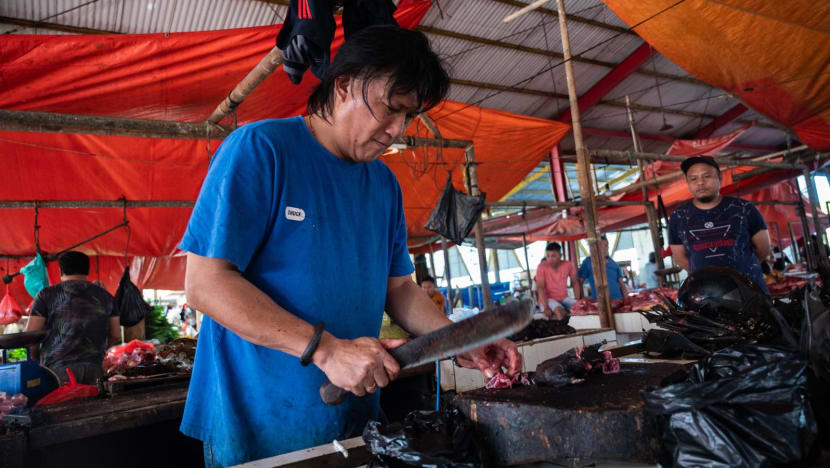
GOING UNDERGROUND
Mr Roy Nangka, a vendor at the Tomohon Extreme Market, told CNA that the market is getting quieter every day since the ban was introduced.
“You can no longer call the market an extreme market,” lamented Mr Nangka, adding that his income has dwindled by as much as 30 per cent.
Many of his regular customers, he said, are travelling beyond the city’s limits to source for dog and cat meat.
“Customers like to shop in one place. They prefer going to a market where they can find everything that they need,” he said.
The situation in Tomohon is a far cry from that in Langoan, a small town one hour's drive away, where dog and cat meat are still openly traded at its local market.
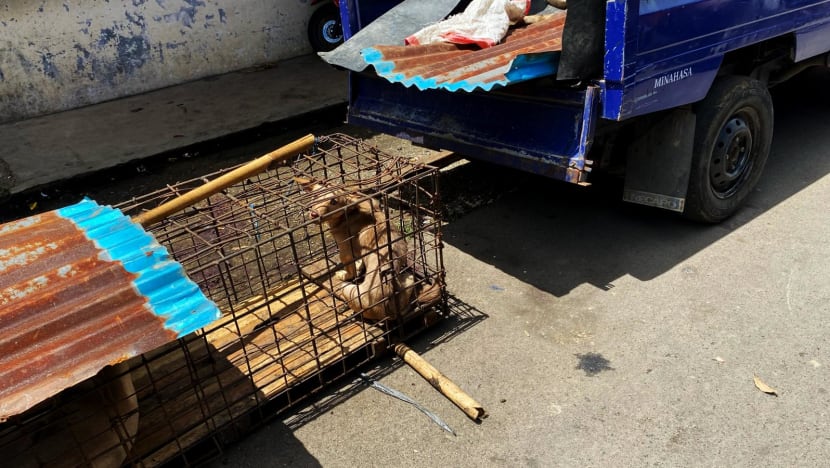
“We are seeing an influx of people from Tomohon coming here to Langoan market,” said one Langoan vendor who wishes to be identified only as Debby.
And some customers may not need to travel far, as Mr Manus said there are reports of vendors at the Tomohon Extreme Market trying their luck by selling dog and cat meat in secret.
“This is why enforcement is important. If officials are turning a blind eye, the trade could flourish again,” he added.
DYING TREND?
But there may be hope yet that a better future for dogs and cats could prevail, say activists.
At one Minahasa restaurant in Tomohon, dog meat is the least popular food around with many customers opting for traditional dishes made from pork and fish.
“Dog and cat meat are considered food for the older generation. The young prefer not to touch them,” said the restaurant owner, Enjelina who refused to divulge her full name.
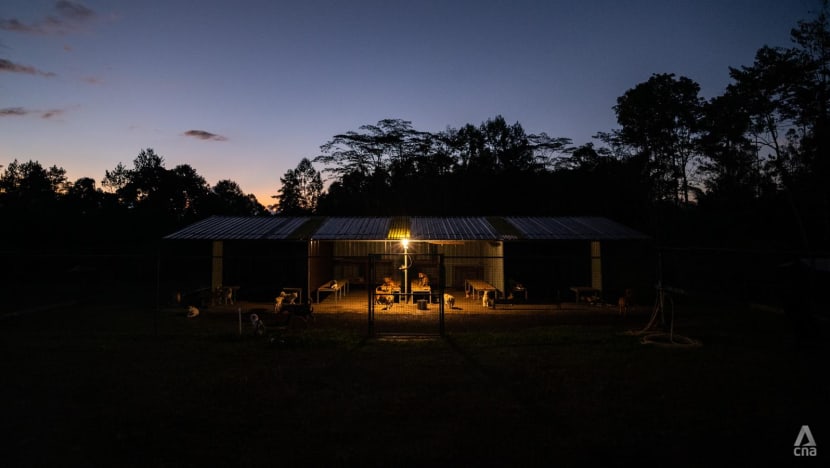
Tomohon animal welfare division chief, Mr Karundeng, echoed the sentiment.
“There are many animal lovers now in North Sulawesi. There are dog shows, pet shops, salons. These things weren’t around before. People’s attitude towards dogs and cats are changing,” he said, adding that city officials will start conducting awareness efforts in schools to educate youth that dogs and cats are not food.
The gradual change in attitude is a welcome sign for Mdm Webber of not-for-profit group HSI.
“Slowly we are inching towards our goal of a dog and cat meat-free Indonesia,” she said.

















